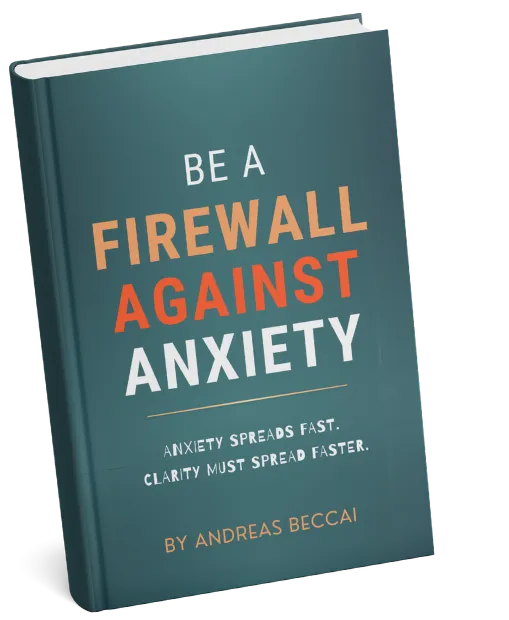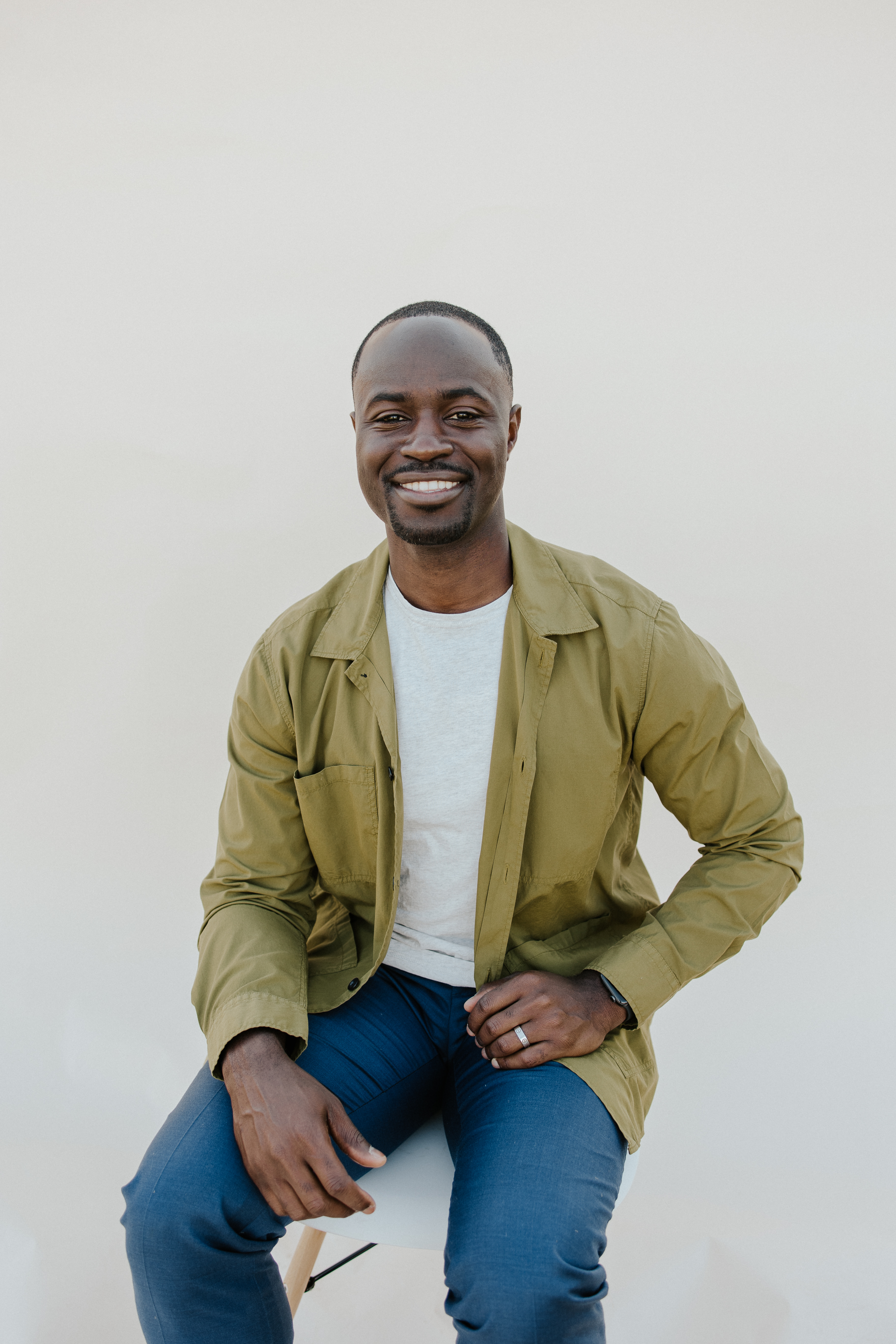Andreas Beccai
Be a Firewall Against Anxiety
Guide For driven professionals carrying immense responsibility under pressure.
If you carry responsibility — at work, in your family, or in your community — this short digital guide will help you become a stabilizing presence instead of another amplifier of stress.
Be a Firewall Against Anxiety
Guide For driven professionals carrying immense responsibility under pressure.
If you carry responsibility — at work, in your family, or in your community — this short digital guide will help you become a stabilizing presence instead of another amplifier of stress.

Let me tell you why you really need this guide
If you carry responsibility — whether for a team, an organization, a family, or a community — your emotional state is never neutral. It shapes the room, influences decisions, and either steadies or destabilizes the people around you.
Under pressure, anxiety spreads quickly, and without realizing it, you can begin absorbing the very stress you’re trying to manage. This free guide gives you practical tools to regulate yourself first, so you can lead with clarity instead of reactivity — becoming a stabilizing presence when it matters most.
What You’ll Learn Inside Be a Firewall Against Anxiety
This isn’t theory. This is emotional leadership training you can apply immediately — in meetings, conversations, and high-pressure moments. Inside this guide, you’ll learn how to:
1. Regulate Yourself Before You React
Discover the simple shift that prevents you from absorbing the emotional chaos around you — so you can respond with clarity instead of instinct.
2. Stay Calm Without Becoming Detached
Many leaders confuse calm with emotional distance.
You’ll learn how to stay grounded and present, without shutting down or withdrawing from the room.
3. Break Emotional Triangles
You’ll learn how to recognize when you’re being pulled into unnecessary tension — and how to step out without escalating conflict.
4. Lower the Emotional Temperature in the Room
Anxiety rises when leaders unintentionally mirror stress.
You’ll learn practical tools to slow conversations, stabilize meetings, and reduce pressure — even when outcomes matter.
5. Carry Responsibility Without Carrying Everyone’s Panic
You can hold vision, responsibility, and hope — without internalizing fear. This guide shows you how to protect your internal clarity while still being deeply engaged and accountable.
6. Become the Emotional Anchor Others Trust
When pressure rises, people instinctively look for steadiness.
You’ll learn how to strengthen your internal posture so that your presence alone begins to calm systems — instead of amplify them.
The higher your responsibility, the stronger your emotional influence.
This guide helps you use that influence intentionally.

About Andreas Beccai
Andreas Beccai is a Self-Leadership & Emotional Clarity Coach who works with leaders carrying responsibility under pressure. His work centers on one powerful truth: the internal stability of a leader determines the stability of the system they lead. Through executive coaching and keynote speaking, Andreas helps high-capacity individuals strengthen their emotional regulation, sharpen their clarity, and lead with steadiness in high-stakes environments.
With a deep understanding of emotional contagion, nervous system dynamics, and self-differentiated leadership, Andreas equips executives, founders, pastors, and team leaders to remain grounded when tension rises. Rather than offering surface-level motivation, he focuses on building emotional maturity, decision-making clarity, and pressure resilience, the qualities that allow leaders to influence without absorbing chaos.
Andreas’ approach blends psychological insight with practical leadership application. Whether through one-on-one coaching, corporate engagements, or keynote presentations, his mission is clear: help leaders regulate themselves first, so they can guide others with confidence, clarity, and composure.
Let me tell you why you really need this guide
If you’re ready to stop absorbing pressure and start leading with steadiness, this is your next step. Download Be a Firewall Against Anxiety today and begin strengthening the one skill that determines how you show up in every room — emotional clarity. It’s practical, direct, and designed for leaders who refuse to operate from stress. Get instant access now and start becoming the stabilizing presence your environment needs.
Andreas Beccai
Privacy Policy | Terms & Conditions
©2026 Andreas Beccai. All Rights Reserved.